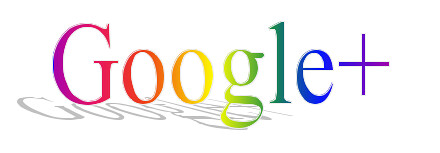Ever since it launched, Ive spent most of my online time on Google+, and so far am very impressed from both the software engineering and business strategy perspectives. I think it’s on track to be a big success, so expect me to be talking about it a lot.
— me, in A work in progress, July 16
Google+’s first few weeks were incredibly exciting. It was social network magic, an updated version of my best experiences at places like Usenet, ezboard, tribe and free-association. My stream was filled with visually gorgeous photos and art, great discussions, and interesting new people. It’s got incredible potential from an activism perspective.* Professionally, while it discombobulated the plans for my nascent startup qweries, it also presents huge opportunities. Exciting!!!
And then the nymwars started.
Privileged much?
“I am a pseudonymous user in many, many [online] services. I appreciate the ability to go incognito and anonymous at times”
— Google VP Bradley “Bro” Horowitz**, quoted in Juan Carlos Perez’ Google Feels the Pain of Users Who Can’t Get on Google+, PC World
Bro’s boss, Vivek “Vicki” Gundotra, doesn’t go by his real name on Google+, so presumably also appreciates the value of pseudonymity. But you wouldn’t guess it from their actions.
Google+ continues to police what names people are allowed to call themselves, demand ID from people whose names they don’t like, and suspend accounts. For a bunch of rationally-identified guys at a rationally-identified company, Google+’s leadership don’t seem to be optimizing particularly well. And despite reports of internal dissension, the rest of the company’s going along with it.
So after a promising start, Vicki and Bro have antagonized hundreds, maybe thousands, of passionate early users. In the process, they’ve.squandered one of their biggest competitive advantages. A lot of people are tired of Facebook’s high-handed behavior and constant reminders that we’re the product, not the customer … but they’ve made Google looks even worse. As M. M. Faulker describes on Venture Beat, Google+ is still struggling to attract more women users. After repeated embarrassing blunders, the tech press and blogosphere are overwhelmingly against them — and it’s becoming a potential boon for Bing, Duck Duck Go, Blekko, and everybody else competing for Google’s core business.
You’d really think they’d have gotten it by now …
Alas, they still seem to be following Google tech lead Joseph “Little Joey” Smarr’s line that it’s too hard to do it right. Really? Here’s what Suw suggested six weeks ago:
Reinstate everyone you’ve suspended. Remove your current name policy. Collaborate with the community on how best to moderate bad actors. If you need some sort of identity policy, let us help you write it. And, finally, apologise to everyone you’ve bullied. There are lots of them, so you might want to start now.
Easy-peasy. But I’m not holding my breath.
About that double bind …
Even though Vicki and Bro have botched their chance for a knockout punch to Facebook, I largely agree with Tom Anderson that Google+ will succeed and most people will use it whether they want to or not. So it creates a huge problem for anybody whose name Google doesn’t like:
- Do they accept the penalty of being excluded from the future that Google’s creating?
- Do they expose themselves to the risk of participating under their real name?
- Or do they hold their nose and lie and choose some “real-looking” name that isn’t them and hope that Google won’t ask for ID?***
 Hey wait a second. I recognize this situation.
Hey wait a second. I recognize this situation.
One of the most characteristic and ubiquitous features of the world as experienced by oppressed people is the double bind – situations in which options are reduced to a very few and all of them expose one to penalty, censure or deprivation.
— Marilyn Frye, Oppression, from The Politics of Reality
And it’s also a dilemma for those of us who think their policy is evil. Opting out has a huge cost. Staying and participating means going against our values and supporting Google’s oppressive policy. Either way we lose.
On a personal level, I’ve really enjoyed hanging out on Google+ and meeting such a diverse group of interesting people — my “people I’ve met on G+ circle” is up over 300! It’s a great place to have discussions and interact, the mix of functionality hits a real sweet spot, and it’s been a real treat to see early stars like Christina Trapolino, Daria Musk, Ryan Estrada, Lee Allison, Botgirl Questi and Kee Hinckley get recognized. And with my activist hat on, it’s got a lot of advantages; combine Google+ with something like Nation Builder and the possibilities are amazing.
So it remains tempting to take advantage of the opportunities. But it’d also be contributing to Google+’s success. A lot of my friends have had their accounts suspended or left in disgust. Until Google changes their naming policy, I don’t feel good about participating when my friends and so many others like them can’t.
About that double bind …
Suggestions welcome.
Now what?
The pressure on Google will continue. Moms are starting to weigh in. There’s talk of an LGBTQ-focused campaign along the lines of “It gets better — but not on Google+”. With sites like Goodbye Google and the Genius Files’ Google Plus Strike series, more and more people are doing with Bonnie Nadri suggests and voting with their (virtual) feet. And I can’t wait to see what Stilgherrian and Skud say on “Mononym Monday”.
Who knows, perhaps Google employees will decide that “Don’t be evil” really means something to them and stop going along with a policy that hurts abuse survivors, teachers, folks with medical conditions, psychologists, women, LGBTQs, mononyms, and dozens of other groups. Or perhaps Larry will realize that the people he’s put in charge of his company’s key project are sabotaging it. As I described in Why it matters, the business case remains overwhelming. We shall see.
More positively, there are other options out there: Dreamwidth, free-association, Diaspora, Hibe, Pidder, discussions about a new open source “social stack“…. Even though none of them have the critical mass or humongous resources of Google yet, the nymwars have really highlighted the need for alternatives to corporate-controlled advertising-sponsored social networks. I’ve renewed my paid Dreamwidth membership, signed up for Diaspora, and will probably help out with some testing and maybe even coding on one of the open source projects. I’m hearing a lot of others say similar things.
And now that we all know each other, we’re working together — on G+ and elsewhere.
To be continued …
jon
Check out the full Google+ and Diversity series: A Work in Progress, Why it matters, #nymwars!, A tale of two searches, The double bind of oppression, Anxious masculinity under threat, Still a Ways to Go, Booberday, Talk about a hostile environment, The Trend is in the Wrong Direction, and In Chaos There Is Opportunity.
Also posted on Google+ and Dreamwidth
* see for example Adina Levin’s The promise of Google+ for organizing on BookBlog, Avory’s The Potential of Google+ for Activism on Radically Queer, Brian Gerald Murphy’s Four reasons Google+ will improve organizing on Lessons in Movement Making, and Colin Delany’s Google+ for Advocacy on e.politics
** Usually, even when I disagree with people I almost always am respectful enough to call them by the names they prefer. But since Bro et. al. are claiming the right to police others’ names, I’m making an exception in this case. Turnabout is fair play.
*** If this last choice doesn’t sound bad to you, well, all I can say is that you must not have spent a lot of time in situations where you were forced to deny your identity or hide something fundamental about yourself.



fjpoblam | 26-Aug-11 at 1:00 pm | Permalink
That’s a good one. And it’s been used for *all* of the Gorg’s practices, including “misbehaviors” (generous term) in SE placement and privacy invasion in other arenas.
“We go along with it because the cost of not doing so is too great.”
Meanwhile, the Gorg has said, “Another provider is just another click away.” (Or, “Like it or lump it.”) It seems not enough folks are willing to take that click away.
It has to start somewhere. Walk the walk, before you talk the talk.
Carnival of Journalism: Google+ | WiredPen | 26-Aug-11 at 4:30 pm | Permalink
[…] In the intervening month since I pitched the topic, the bloom has faded from the rose a quite bit for me due to Google’s inexplicable heels-dug-in behavior regarding its “real names” policy. I think Google is wrong, and I believe that the service has lost both goodwill and momentum due to the manner (to call it uneven is being kind) in which the policy has been implemented. Nevertheless, I believe that the size and reach of Googledom, coupled with attractive features, tilts the long-term viability of Google+ towards the positive, despite the very real shortcomings of the real names (#nymwars) policy. […]
Euan | 27-Aug-11 at 1:11 am | Permalink
On the face of it, it costs me nothing to be on G+. I mostly use my real name on the Internet and the areas I use a Pseudonym are few and not connected to Google.
But it’s an evil policy, so there’s no choice. G+ profile deleted and I’m working on extracting myself from the rest of Google’s services. Principles are not supposed to be easy.
Gretchen | 27-Aug-11 at 3:59 pm | Permalink
I, too, am curious to see what will happen on Mononym Monday!
jon | 29-Aug-11 at 8:42 pm | Permalink
Stilgherrian and Skud’s Mononym Monday podcast is Google’s real names a real disaster doesn’t disappoint. Check it out!
Meanwhile on Google+, Sheila Marie reacts to Tim O’Reilly’s characterization of people opposing Google’s policy as a “lynch mob”:
Carnival of Journalism Wrap: Google+ | WiredPen | 30-Aug-11 at 11:25 pm | Permalink
[…] Finally, I weigh in on the #nymwars but also highlight ways faculty and journalists might use the service (with tips, too): In the intervening month since I pitched the topic, the bloom has faded from the rose a quite bit for me due toGoogle’s inexplicable heels-dug-in behavior regarding its “real names†policy. I think Google is wrong, and I believe that the service has lost both goodwill and momentum due to the manner (to call it uneven is being kind) in which the policy has been implemented. Nevertheless, I believe that the size and reach of Googledom, coupled with attractive features, tilts the long-term viability of Google+ towards the positive, despite the very real shortcomings of the real names (#nymwars) policy… […]
Liminal states :: Anxious Masculinity Under Threat: Google+ and Diversity, part 6 | 02-Sep-11 at 12:26 pm | Permalink
[…] * names chosen in conformance with the “turnabout is fair play” policy I announced in last week’s The Double Bind of Oppression […]
Liminal states :: Still a Ways to Go: the Suggested Users List (part 7 of Diversity and Google+) | 04-Sep-11 at 1:25 pm | Permalink
[…] posts in the series: A Work in Progress, Why it matters, #nymwars!, A tale of two searches, The double bind of oppression, and Anxious masculinity under […]
Liminal states :: It’s hard to be optimistic (part 9 of Google+ and Diversity) | 19-Sep-11 at 3:03 am | Permalink
[…] me, The double bind of oppression, late […]